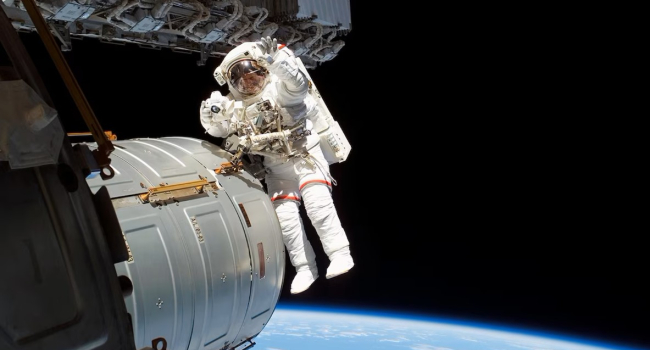
Can human kidneys survive a trip to Mars? New research reveals risks
A study conducted by scientists at University College London (UCL) has revealed serious kidney health risks in spaceflight conditions, which could jeopardize ambitious long-term missions such as expeditions to Mars.
In this study, an international team of scientists conducted extensive experiments and analyses using data and samples from 20 research cohorts. These included over 40 missions in low Earth orbit and 11 space simulations involving mice and rats.
Particularly important were seven simulations in which mice were exposed to doses of galactic cosmic radiation (GCR, the natural radiation background in space) equivalent to Mars missions lasting 1.5 and 2.5 years, simulating spaceflight conditions beyond Earth's magnetic field.
The study results showed that both humans and animals experienced "remodeling" of their kidneys in microgravity conditions. Specific kidney tubules responsible for calcium-salt balance began to shrink after just a month in space.
Additionally, it was previously believed that the main cause of kidney stone formation in space was the loss of bone mass and the accumulation of calcium in urine. However, the new study showed that the process of salt handling in the kidneys also changes dramatically under space conditions.
Dr. Keith Siu, the study's lead author, noted: "If we do not develop new ways to protect the kidneys, astronauts may face the need for dialysis on the return journey. Kidneys show signs of radiation damage late, and when it becomes apparent, it may already be too late to prevent failure."
Another author of the study, Professor Steven B. Walsh, also emphasized the importance of kidney protection in space missions: "It is impossible to protect them from galactic radiation through shielding, but it is possible to develop technological or pharmaceutical measures to facilitate long-duration space travel."
According to him, any medications developed for astronauts could also find applications on Earth, such as for cancer patients undergoing radiotherapy.
- Related News
- Will the Earth survive a nearby supernova explosion?
- Perseverance discovers unusual rocks that look like popcorn on Mars
- ‘This innovation will change the world:’ Elon Musk confirms Starlink mini to be twice as cheap and fit in a backpack
- Scientists discover curious star that crosses Milky Way at speed of 2.1 million km/h
- Huge black hole suddenly awakens in constellation Virgo: It is million times more massive than the Sun
- The Sun's magnetic field is about to flip: What does it mean and what to expect?
- Most read
month
week
day
- In the future, smartphones will disappear, instead there will be brain implants: Elon Musk’s predictions 1003
- ‘This innovation will change the world:’ Elon Musk confirms Starlink mini to be twice as cheap and fit in a backpack 775
- Strange iPhones without camera appear online: Are they for nuclear power plant workers? 741
- Fusion technology breakthrough: China unveils first commercial “artificial sun” (photo) 714
- Huge black hole suddenly awakens in constellation Virgo: It is million times more massive than the Sun 676
- Perseverance discovers unusual rocks that look like popcorn on Mars 658
- What problems can arise in children from playing too much of the popular game Hamster Kombat? 619
- Gen-3 Alpha: Runway introduces AI generator for realistic videos 614
- Apple is ready to open access to NFC on iPhone, but only in the EU 603
- iOS 18 update makes iPhone 25% more powerful 583
- Archive
